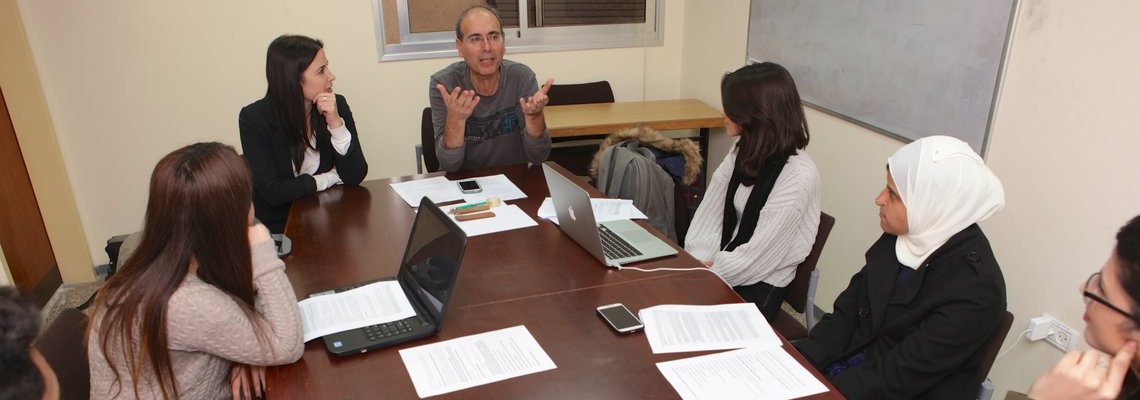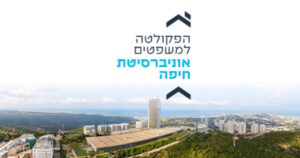
The Clinic for the Rights of the Arab-Palestinian MinorityOOO

{tab About Us}
The Clinic for the Rights of the Arab-Palestinian Minority
برنامج حقوق الأقلية العربية-الفلسطينية
The national schism in Israel is probably the defining schism of Israeli society. It is a comprehensive one, deeply controversial, and saturated in tension. There are inner tensions (claims of dispossession and discrimination) and outer tensions (the deepening of the schism in the shadows of the bleeding Israeli-Palestinian and Israeli-Arab conflicts).
The Clinic’s mission is to explore legal issues related to the national schism in Israeli society and support action in relation to it, in three capacities: assisting human rights organizations in legal correspondence and litigation, conducting classroom discussions and writing individual research papers.
The Clinic functions on the basis of existing disagreements without evading the issues at stake, nor pretending consensus where it does not exist. So, for example, the Jewish and Arab citizens of Israel may differ in their view of the preferable national identity of the State, as may that of Arabs and Jews of varying social groups and identities. It is an ongoing and stable reality. Hence the Clinic functions within a shared middle-ground of values, as declared in the Declaration of Independence:
The state of Israel should “foster the development of the country for the benefit of all its inhabitants; it will be based on freedom, justice and peace as envisaged by the prophets of Israel; it will ensure complete equality of social and political rights to all its inhabitants irrespective of religion, race or sex; it will guarantee freedom of religion, conscience, language, education and culture; it will safeguard the Holy Places of all religions; and it will be faithful to the principles of the Charter of the United Nations.”
In other words, the clinic is active in instances of exclusion and discrimination of the Arab-Palestinian minority, unacceptable under the definition of Israel as a “Jewish and Democratic State”.
Areas of research and action over the years include: the profiling and stigmatization of Arabs at airports and entrances to public spaces; the rights of people with disabilities in Arab society; the State’s communication with its Arab citizens through the Government Advertising Agency; equality for Arab students taking the Psychometric exam; the authority to name streets in Arab municipalities; the use of classified evidence, including the analysis of a bill currently being considered which will appoint “special advocates” to assist in the representation of individuals affected by the use of secret evidence; the freedom of expression in the arts, and more.
In addition to all of these, each of the clinic participants conducts research and writing about one of the issues encountered in the clinic.
For Further Information, contact us at:
Dr. Ilan Saban | 04-8240637 isaban@research.haifa.ac.il
{tab Projects}
Discrimination in the workplace on the basis of political views
A newspaper fired an editor because of a piece he published concerning a Bedouin casualty of “Tzuk Eitan”, the armed conflict in 2014. The clinic assisted the lawyers that are representing the editor pro bono. The case is pending.
Discrimination in the Government Advertising Agency
The Government Advertising Agency is the agency in charge of “talking” with citizens: instructing them how to behave in emergency, safety measures in employment, rights and entitlements. The resources directed to advertising in Arabic is significantly smaller than their share in the population, and advertising is not suited to the unique needs of the Arab population. As a result, the clinic, together with partnering NGOs has approached the government advertising agency demanding it equalize the funding directed to the Arab citizens.
Accessibility to governmental services in Arabic
The clinic, together with the Association for Civil Rights in Israel (ACRI) is engaged in action to promote access to governmental services in Arabic, such as documents concerning public housing and the execution office. The students visited execution offices in Haifa, Acre, Krayot, Nazareth and Hadera, and their reports will serve as a basis for legal action.
Discrimination of an Arab Student in a Teachers’ College
The clinic represented an Arab student in a teachers’ college who was forced to take a language aptitude test in Arabic, although he preferred to do the test in Hebrew. Following the clinic’s involvement, the student was allowed to choose between doing the test in Hebrew and Arabic.
{tab Picture Gallery}
{/tabs}


